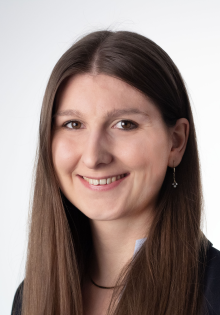Due to growing pressure from regulations, customer expectations and environmental requirements, companies are faced with the challenge of making their added value more sustainable. One approach is the circular economy. It makes it possible to develop products in such a way that the resources used are reduced, their utilisation is intensified and their recycling is ensured. As part of the "ZirkuPro" ("Circular Product Creation" – German: Zirkul?re Produktentstehung) research project, scientists from Paderborn University and the Fraunhofer Institutes IEM (Paderborn) and IZM (Berlin) have developed a practical solution: a structured process model, i.e. a methodological guide that describes how certain goals can be achieved. It defines typical phases and serves to make processes efficient, transparent, and controllable. In addition, there is a comprehensive methodological toolbox that helps companies to efficiently design and implement circular products. A key focus was on electronics as a core component of intelligent technical systems. In this context, particular attention was paid to critical material combinations, such as rare earths, as well as frequently underestimated CO2 emissions. The research project was sponsored for three years as part of the "it's OWL" technology network with around three million euros from the Ministry of Economic Affairs, Innovation, Digitalisation and Energy of the State of North Rhine-Westphalia (MWIDE NRW), now the Ministry of Economic Affairs, Industry, Climate Action and Energy of the State of North Rhine-Westphalia (MWIKE), and was recently successfully completed.
Practical support for companies
Circular product development refers to a sustainable development approach in which products are designed in such a way that they efficiently take into account the principles of the circular economy. The aim is to conserve resources and minimise waste by keeping materials and energy in closed loops. "In order to offer companies a clear approach, we have developed a system that maps the entire process of circular product creation: from initiation to potential identification, solution design and evaluation through to implementation," explains Julia Marie Vehmeyer, research associate in the “Advanced Systems Engineering” specialist group at the Heinz Nixdorf Institute at Paderborn University. The ZirkuPro method kit is a key tool: "We developed it on the basis of extensive research and an interview study with experts. The result is a collection of 21 methods that contains both tried-and-tested approaches and newly developed approaches. These methods support companies in the development of sustainable products and the associated business models and value creation," explains Vehmeyer. The research conducted by the “Advanced Systems Engineering” specialist group focused on identifying potential, developing business models, designing value creation, and developing goals with the help of the Circular Readiness Check. With the latter, the extent to which organisations are prepared for circular business models is checked. This gives them an indication of which circular principles are suitable for their product.
Successful application in industry
The system was successfully tested in the project consortium, which includes several industrial partners. Companies were able to select specific methods from the method kit and integrate them into their product development process. One particularly successful example is the development and manufacturing service provider CP contech electronic. The electronics company has implemented several methods from the case and gained valuable impetus for increasing circularity in the product development process. This will make it possible in future to develop circular products together with clients and thus actively contribute to the circular economy. Vehmeyer draws a positive conclusion: "There was a consensus among our pilot partners at the final meeting. ZirkuPro has provided the impetus for them to systematically address the topic of circularity at an early stage. The project has enabled them to take decisive steps towards sustainability and the circular economy and gain a clear lead in these fields."
If companies are interested, they can contact Julia Marie Vehmeyer from the Heinz Nixdorf Institute at Paderborn University directly.
This text was translated automatically.




